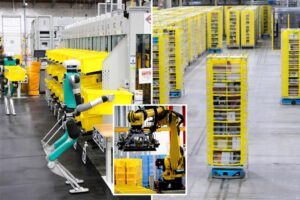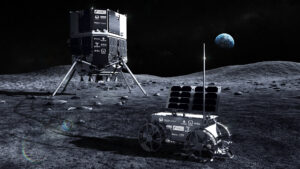
In the rapidly evolving landscape of artificial intelligence, Sarah Skidd, a product marketing manager, finds herself in a unique position. While AI tools like ChatGPT are designed to streamline content creation, Skidd’s expertise is increasingly sought after to correct the very issues these tools create. In May, she was approached by a content agency to overhaul website copy generated by AI for a hospitality client. What was intended as a cost-saving measure instead resulted in a series of complications.
“It was the kind of copy that you typically see in AI copy—just very basic; it wasn’t interesting,” Skidd explains. “It was supposed to sell and intrigue but instead it was very vanilla.” Skidd, based in Arizona, spent approximately 20 hours rewriting the content, charging $100 (£74) per hour. Rather than making minor adjustments, she found herself redoing the entire project.
Despite the growing reliance on AI, Skidd remains optimistic about the future of human copywriters. “Maybe I’m being naive, but I think if you are very good, you won’t have trouble,” she states. She notes that many writers now find themselves primarily fixing AI-generated content. “Someone connected with me and said that was 90% of their work right now. So, it’s not only me making money off such missteps, there’s other writers out there.”
The AI Boom and Its Unintended Consequences
The rise of generative AI tools like OpenAI’s ChatGPT and Google’s Gemini has transformed business practices, promising efficiency and cost savings. According to the Federation of Small Businesses, over a third (35%) of small businesses plan to expand AI use within two years, with that figure rising to 60% among those targeting rapid sales growth.
However, the rush to integrate AI has led to unforeseen challenges. Sophie Warner, co-owner of Create Designs, a digital marketing agency in Hampshire, UK, has witnessed a surge in requests for assistance from clients who initially turned to AI for quick solutions but encountered problems instead. “Before, clients would message us if they were having issues with their site or wanted to introduce new functionality,” Warner explains. “Now they are going to ChatGPT first.”
This reliance on AI has led to technical issues, such as website crashes and increased vulnerability to cyber threats. Warner recounts an incident where a client used AI-generated instructions to update an event page, resulting in a costly error. “The error ultimately cost them about £360 and their business was down for three days,” she says.
Expert Insights on AI Limitations
Prof Feng Li, associate dean for research and innovation at Bayes Business School, cautions against overestimating the capabilities of current AI tools. “AI is known to hallucinate—to generate content that is irrelevant, made-up, or inconsistent,” he warns. “Human oversight is essential.”
“We’ve seen companies generate low-quality website content or implement faulty code that breaks critical systems. Poor implementation can lead to reputational damage and unexpected costs—and even significant liabilities, often requiring rework by professionals.”
In Gujarat, India, copywriter Kashish Barot echoes these concerns. She frequently edits AI-generated content for US clients to make it more human and remove patterns that betray its artificial origins. “AI really makes everyone think it’s a few minutes work,” Barot notes. “However good copyediting, like writing, takes time because you need to think and not curate like AI, which also doesn’t understand nuance well because it’s curating the data.”
Looking Ahead: Balancing AI and Human Expertise
The enthusiasm for AI has prompted many companies to experiment without clear objectives or an understanding of the technology’s limitations. Prof Li emphasizes the importance of assessing whether businesses have the necessary data infrastructure, governance processes, and in-house capabilities to support AI use. “Relying on off-the-shelf tools without understanding their limitations can lead to poor outcomes,” he asserts.
OpenAI acknowledges the variability in results depending on the model used, the user’s experience, and the prompt’s construction. “Each of our models has different capabilities for completing different tasks,” the company notes.
As businesses continue to navigate the integration of AI, the role of human expertise remains crucial. Professionals like Skidd, Warner, and Barot are not only correcting AI’s missteps but also educating clients on the technology’s potential and pitfalls. The future will likely see a more balanced approach, where AI serves as a tool to enhance human creativity and efficiency rather than replace it.







